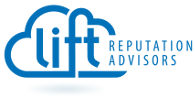What would happen if everyone said precisely everything they thought all the time? That was the premise of the popular Jim Carrey movie, Liar, Liar, the tale of a successful lawyer incapable of telling a lie for an entire day due to a birthday wish granted for his son, Max. Carrey’s performance as Fletcher Reede, a lawyer obsessed with his career, shows what can happen to your relationships when bending the truth at the expense of others becomes a way of life. Eventually, his habitual lies catch up with him. Once he finds it impossible to tell a lie, we see Fletcher wrestling with the consequences of his blunt truth-telling, while teaching us important life lessons about lying, ethics and personal integrity.
We all grapple with the moral dilemma Fletcher Reede faced in the movie Liar, Liar. No doubt everyone has told a “little white lie” every now and then to ease a friend’s distress, appear more likeable or avoid conflict. Research from the University of Massachusetts suggests that most people lie 2-3 times during the typical 10-minute conversation, often without even realizing it. But while lying may be a common practice, I think most of us agree that the end does not always justify the means.
According to modern-day philosopher Sisela Bok, each of us faces the choice every day about the degree to which we will tell the truth in our interactions with other people. Consciously or not, we often find ourselves pitched in a moral battle between “truth or consequences,” sharing information based upon how it will serve our own self-interests or how we feel others will respond.
Bok writes about this in her book, Lying: Moral Choice in Public and Private Life. In it she argues that all the important things we want to do in life are made possible by pervasive trust. We are influenced by a strong moral persuasion against lying. She calls this the principle of veracity.
Veracity or truth telling is grounded in respect for persons and the concept of autonomy. For a person to make fully rational choices, he or she must have the information relevant to his or her decision. When contemplating a lie, Bok suggests we consult our conscience and ask ourselves:
- Are there truthful alternatives to telling the lie to deal with the issue or problem?
- What is the context of the lie (for example, what relationship exists between you and your potential dupe)?
- What moral justifications are there for telling this lie ─ and what counter-arguments can be raised against those justifications?
- If the lie becomes public, what would a reasonable jury of peers say about the lie, its effects or impact on others? In other words, what might the consequences be to those involved?
Weighing the answers to these questions should help resolve the decision about how to act. But if you have doubts, she says, bounce your decision off friends or peers.
I chose to be an entrepreneur so I could do the work I love and control my own destiny. For me and others like me who provide specialized advice and expertise to our clients, trust is the glue that holds that dream together. It helps us make meaningful connections and establish collaborative relationships.
It takes time to build trusting relationships, but that trust can be eroded in seconds if we do not practice what we preach. Here are three trust-building habits to follow while doing business in 2017:
Choose your words carefully. Say what you mean and mean what you say. Too often, we speak carelessly or we make promises we can’t possibly keep. Words leave a lasting impression, so make them count. Otherwise, you may have to eat them later.
Be consistent in what you say. In the PR world, this is called staying on message. Why is this important? People will only believe what you say if you consistently send the same, strong message. Constantly changing direction or denying that you made a prior comment confuses people at best, and breeds mistrust at worst.
Admit when you make mistakes. Own it and make amends. Playing the blame game or attempting to cover up the mistake will only prolong the misery. Determine what happened and why, then take steps to prevent it from happening again.
What we say and how we say it empowers our communication, gives our ideas meaning and subtext and allows us to express ourselves to others to make meaningful connections. Through our words, we can create mutually satisfying outcomes. We can choose connection over conflict.
The immediacy of social media makes it easy to express our views, observations, support for others or concerns about any given issue or topic at any given time. After the tumultuous events of 2016 ─ the British Exit from the European Union; the Russian hack of the Democratic National Committee; and Trump’s zealous use of Twitter to make rhetorical flourishes against his perceived adversaries ─ social media has been widely blamed for the spread of propaganda and fake news. This highly charged atmosphere makes it even more important to approach what we do and say on social media with purpose, truth and transparency.
So, whether you are a believer in telling the naked truth or softening the blow with a well-dressed lie, take a moment to think before you speak. You may find your relationships and business performance are better for it.
The views expressed here are mine and mine alone. They do not necessarily reflect the opinions of my current or former employers, my friends and colleagues, anyone I may have met in the past or may meet in the future.

